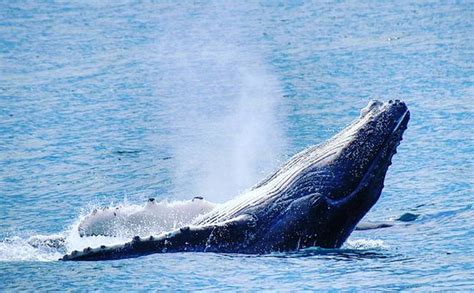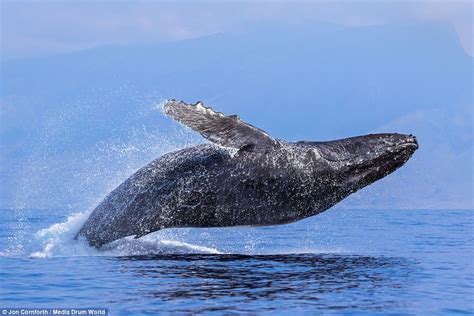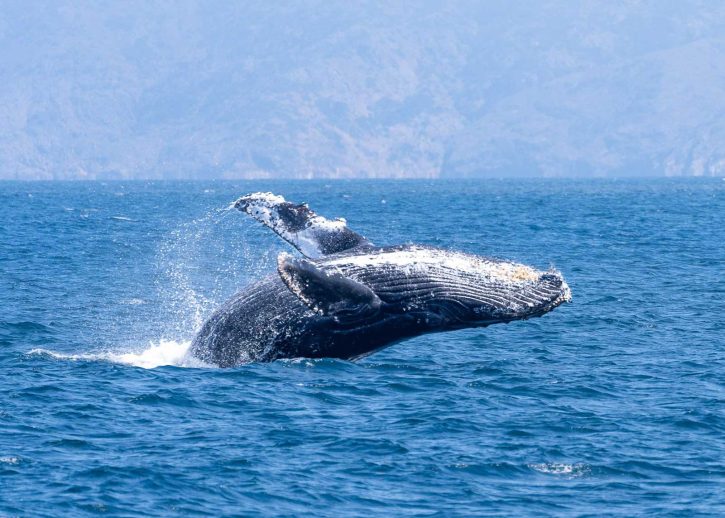Humpback whales are among the most awe-inspiring creatures in the ocean, captivating the hearts of animal lovers and marine enthusiasts alike. These majestic giants play a crucial role in maintaining the balance of marine ecosystems, contributing significantly to the health of our oceans. Beyond their ecological importance, humpback whales have also left a profound impact on human culture, inspiring art, music, and storytelling across the globe. Furthermore, the presence of these whales has fostered a thriving whale-watching industry, supporting local economies while promoting awareness and conservation efforts. In this article, we will explore the fascinating world of humpback whales and the vital work being done to protect them.
ugodj.com offers a detailed exploration of this topic.
1. Ecological Significance: The role of humpback whales in marine ecosystems.
Humpback whales are vital to the health and balance of marine ecosystems. Their long migrations across vast ocean distances contribute to nutrient cycling by transporting nutrients from the depths of the ocean to the surface. This process, known as the “whale pump,” stimulates the growth of phytoplankton, the foundation of the marine food web. Phytoplankton are also responsible for producing a significant portion of the world’s oxygen.
Humpback whales, as apex predators, play a crucial role in regulating the populations of fish and krill. This control prevents overgrazing of lower trophic levels, ensuring the biodiversity and stability of marine ecosystems. Furthermore, their carcasses, when they sink to the ocean floor, become a significant food source for deep-sea organisms, bolstering the complex web of life in the ocean depths.
Humpback whale populations serve as a vital indicator of the ocean’s overall health. Protecting these majestic creatures is not only crucial for their own survival but also for maintaining the delicate equilibrium of the ecosystems they call home.

2. Cultural Impact: How humpback whales inspire art, music, and storytelling in different cultures.
Humpback whales have long been a source of inspiration and fascination for countless cultures around the world. Their haunting songs, which echo across vast stretches of ocean, have captured the imagination of listeners and become synonymous with the ocean’s enigmatic beauty. These songs have not only influenced contemporary music but also played a crucial role in traditional rituals and ceremonies of indigenous communities, who often revere the humpback whale as a sacred creature.
The majestic form of the humpback whale, often depicted in paintings, sculptures, and other visual art mediums, symbolizes strength, grace, and the interconnectedness of life. These artistic representations frequently emphasize the whale’s role as a guardian of the sea, conveying messages of environmental stewardship and the vital importance of preserving the natural world.
Across the globe, storytelling traditions are brimming with tales of humpback whales. These narratives weave together threads of wisdom, power, and gentle nature, serving as a bridge between human culture and the natural world. These stories remind us of our shared heritage and the profound connection we have to these magnificent marine creatures. Through these cultural expressions, humpback whales continue to inspire and resonate deeply with people worldwide.

3. Tourism and Economy: The contribution of whale watching to local economies.
Whale watching has emerged as a powerful engine for tourism and economic development in coastal communities across the globe. The captivating experience of witnessing humpback whales in their natural environment attracts thousands of tourists annually, injecting substantial vitality into local economies. This form of ecotourism fosters a ripple effect, benefiting not only directly involved businesses like tour operators and guides but also a diverse array of related industries, such as hotels, restaurants, and local artisans.
Whale watching revenue plays a crucial role in sustaining local economies. It creates employment opportunities and promotes sustainable economic growth, particularly in regions where traditional industries may be struggling. Moreover, the increasing popularity of whale watching cultivates a deeper respect for marine life, inspiring conservation initiatives and responsible tourism practices.
Whale watching plays a vital role in protecting humpback whales by raising awareness and fostering understanding of these magnificent animals. The economic benefits of whale watching extend beyond simple profits, as communities increasingly recognize the need to safeguard the natural environment that sustains their livelihoods. This demonstrates that wildlife conservation can be seamlessly integrated with economic development, making whale watching a powerful example of how to achieve both.

Humpback whales are more than just magnificent creatures of the deep; they are vital to marine ecosystems, deeply woven into cultural narratives, and integral to local economies through ecotourism. Their ecological significance, cultural impact, and contribution to tourism highlight the need for continued conservation efforts. By protecting these whales, we not only preserve an iconic species but also support the health of our oceans and the cultural and economic vitality of communities aroun
ugodj.com

